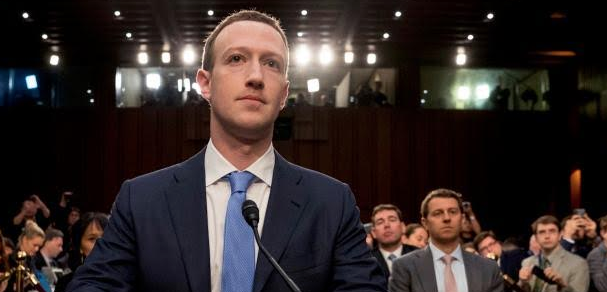Facebook cares more about corporate success than user privacy
5 min read
Quartz at Work
By GRACE WINFIELD
Senior Writer
Founded in 2004, Facebook is the most popular social network worldwide. According to Statista, Facebook acquired 2.2 billions members by the of the fourth quarter of 2017, the members varying in nationality, age, and sexual orientation.
Most users view the site as a way to update their friends on their lives and to easily stay or get connected. What they aren’t realizing is that Facebook, with its pros, is doing more harm than good. The destructive site is intentionally manipulating members into addiction, and selling their rising data for profit.
In a statement released mid-March, the Federal Trade Commission (FTC) confirmed their current investigation of Facebook’s data practices in wake of the Cambridge Analytica scandal.
According to the New York Times, the firm was found to have harvested and sold private information of its members from the Facebook profiles of more than 50 million users without their consent, in a release from former Cambridge employees. With the information, the company exploited private social media activity to various companies, as well as in relation to the 2016 elections. The techniques developed and data acquired was applied to President Trump’s 2016 Campaign and aided Russian interference and advertisement with the elections. The Facebook data leak is one of the largest in social network’s history.
Cambridge Analytica, a political research firm that combines data mining, data brokerage, and data analysis with strategic communication for the electoral process, is funded in large part by Robert Mercer. Mercer donated money to President Trump’s election campaign, in turn helping the Trump campaign target political ads on Facebook.
In retaliation to the privacy concerns, several prominent figures and companies have deleted their Facebook accounts, including Will Ferrell, Cher, and Mozilla.
Brian Acton, co-founder of WhatsApp, a messaging app, tweeted to his followers March 20, “It is time. #deletefacebook,” in wake of the recent breech discoveries. WhatsApp was acquired by Facebook in 2014 for 19 million dollars, according to CNBC.
Facebook’s meandering goes beyond the corporate and political spectrums. They’re in your head.
Chamanth Palihapitaya, who previously served as Facebook’s vice president for user growth, expressed his guilt and concern for members’ privacy and mental health in a recent interview with CBS. “We have created tools that are ripping apart the social fabric of how society works,” said Palihapitaya. He continued, “the short-term dopamine driven feedback loops that we’ve created are destroying how society works. (There’s) no civil discourse, no cooperation, (just) misinformation, mistruth. Bad actors can now manipulate large swaths of people to do whatever you want…You don’t realize it, but you are being programmed.”
Sean Parker, Facebook’s first president before being let go in 2005, spoke about the moral misconduct at a recent event at the National Constitution Center. “You’re exploiting a vulnerability in human psychology…The inventors, creators — it’s me, it’s Mark [Zuckerberg], it’s Kevin Systrom on Instagram, it’s all of these people — understood this consciously. And we did it anyway,” Parker said.
These previous Facebook employees aren’t speaking out of vengeance, either. Researchers are now focusing on the effect social media use and engagement has on the brain, both physically and mentally. “According to several recent brain imaging studies, severely affected Internet addicts show structural and functional brain abnormalities similar to those found in people with substance abuse problems. Other research has shown that Internet addiction frequently coexists with anxiety, depression, or an addiction to other things like alcohol or drugs,” said CBS.
In Zuckerberg’s first appearance before Congress on April 10, 44 senators had five minutes each to question him directly, not giving much time for big developments or follow-up questions. The topics of these questions varied, including consumer privacy, Facebook content and tech regulations.
When asked about storing and selling user data, Zuckerberg responded, “Yes, we store data … some of that content with people’s permission.” He continued, “there’s a very common misconception that we sell data to advertisers. We do not sell data to advertisers. What we allow is for advertisers to tell us who they want to reach, and then we do the placement … That’s a very fundamental part of how our model works and something that is often misunderstood.” If this is true, then how did Cambridge Analytica get its hands on our data?
“What my understanding was that they were not on the platform, [they] were not an app developer or advertiser. When I went back and met with my team afterwards, they let me know that Cambridge Analytica actually did start as an advertiser later in 2015,” said Zuckerberg in his own defense. He continued, “So we could have in theory banned them then … When we heard back from Cambridge Analytica that they had told us that they weren’t using the data and deleted it, we considered it a closed case. In retrospect, that was clearly a mistake. We shouldn’t have taken their word for it. We’ve updated our policy to make sure we don’t make that mistake again.”
Does Zuckerberg believe he sounds honest when he claims he and the others of Facebook decided to take the company’s “word” that they had deleted the information? If he were truly responsible with our data, if he really cared about the ethics of utilizing user data, why would he not have investigated the breach to further ensure and preserve user privacy? To save his image.
Facebook leaves us less happy, less satisfied, and less confident with our ever-expanding connections. Despite the mounting evidence of the social network’s negative effects, users still can’t shake the app, myself amongst them.
In today’s world, it is nearly impossible to land a job, or be a functioning participant of society, without a digital identity. Even if we do delete Facebook, how will we trust that its other company, Instagram, or another social network like Twitter, won’t misuse our data?
Here’s what we do know.
Facebook treats its users as statistics, as tools to expand their wealth and company. They are manipulating the way we think, both about the world around us and ourselves. Facebook has allowed itself to fall into the black hole of deception in order to aid politicians, businessmen and whoever else with a fat enough wallet, in their scheme of mass manipulation, and they’re leaving your mental health and security behind.
Regulation is going to be necessary, and Congress has the power to do it. Companies like Facebook are imposing on our freedom by accessing our messages, browser history, contacts and locations, and using them for their own monetary incentive. Anyone who sincerely wants a free, open and innovative Internet needs to work across partisan divides to protect user privacy.











